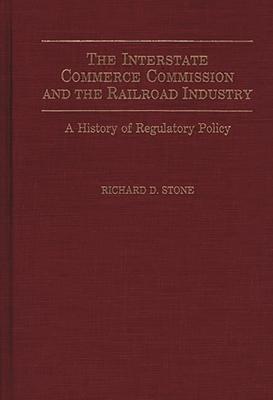This work explores the philosophy, actions, and policies of the Interstate Commerce Commission by focusing on the development of its railroad regulation practices, particularly since 1976. Richard Stone traces the radical change in the ICC's view of the rail industry, from the maximum control it exercised for many years through the unilateral deregulation that was begun in 1978. He considers the forces and pressures that contributed to the Commission's actions, including Congress, the president, the railroads, rail shippers, and academicians.
The book begins with two chapters that survey the history of the ICC and rail regulation through the mid-1970s. Stone then turns to the events of 1976, when the seeds of deregulation were sown with the election of Jimmy Carter and the passage of the Railroad Revitalization and Regulatory Reform (4R) Act. Subsequent chapters cover the years between the 4R Act and the Staggers Act, which were characterized by the Commission's changing attitude toward rail regulation; the background and provisions of the 1980 Staggers Act and the events that followed it; and the recent events and changes in philosophy that have taken place at the ICC with regard to the rail industry. This study, the first to be published on the ICC since 1976, follows that body's transformation from a powerful independent commission to a much smaller and less influential institution. The work will be a valuable resource for students of public policy, transportation studies, and political science.
Book
The Interstate Commerce Commission and the Railroad Industry: A History of Regulatory Policy
(Write a Review)
Hardcover
$105.56
This work explores the philosophy, actions, and policies of the Interstate Commerce Commission by focusing on the development of its railroad regulation practices, particularly since 1976. Richard Stone traces the radical change in the ICC's view of the rail industry, from the maximum control it exercised for many years through the unilateral deregulation that was begun in 1978. He considers the forces and pressures that contributed to the Commission's actions, including Congress, the president, the railroads, rail shippers, and academicians.
The book begins with two chapters that survey the history of the ICC and rail regulation through the mid-1970s. Stone then turns to the events of 1976, when the seeds of deregulation were sown with the election of Jimmy Carter and the passage of the Railroad Revitalization and Regulatory Reform (4R) Act. Subsequent chapters cover the years between the 4R Act and the Staggers Act, which were characterized by the Commission's changing attitude toward rail regulation; the background and provisions of the 1980 Staggers Act and the events that followed it; and the recent events and changes in philosophy that have taken place at the ICC with regard to the rail industry. This study, the first to be published on the ICC since 1976, follows that body's transformation from a powerful independent commission to a much smaller and less influential institution. The work will be a valuable resource for students of public policy, transportation studies, and political science.Hardcover
$105.56